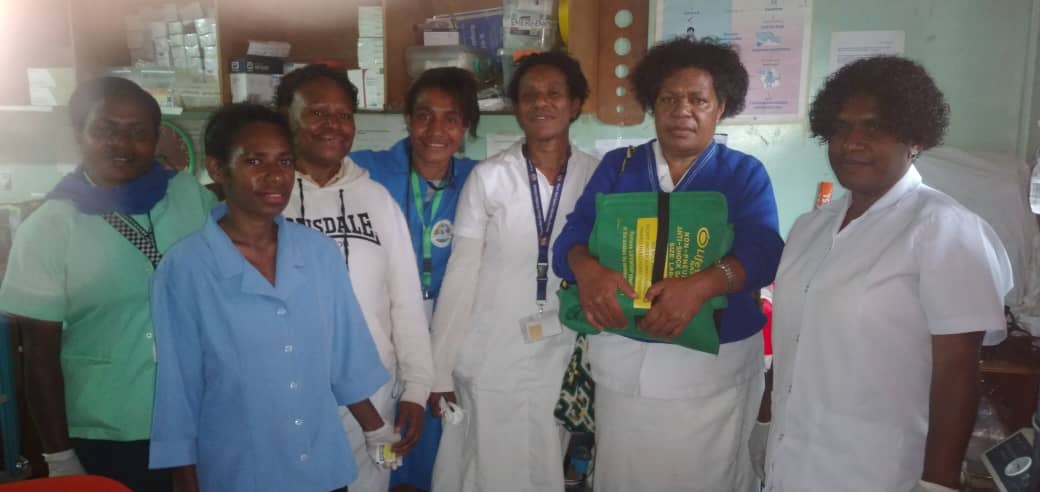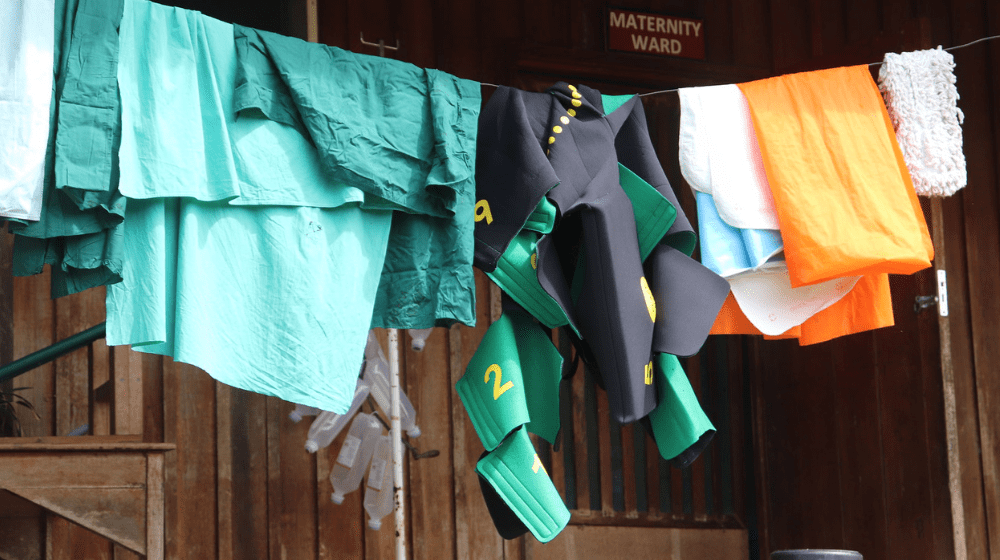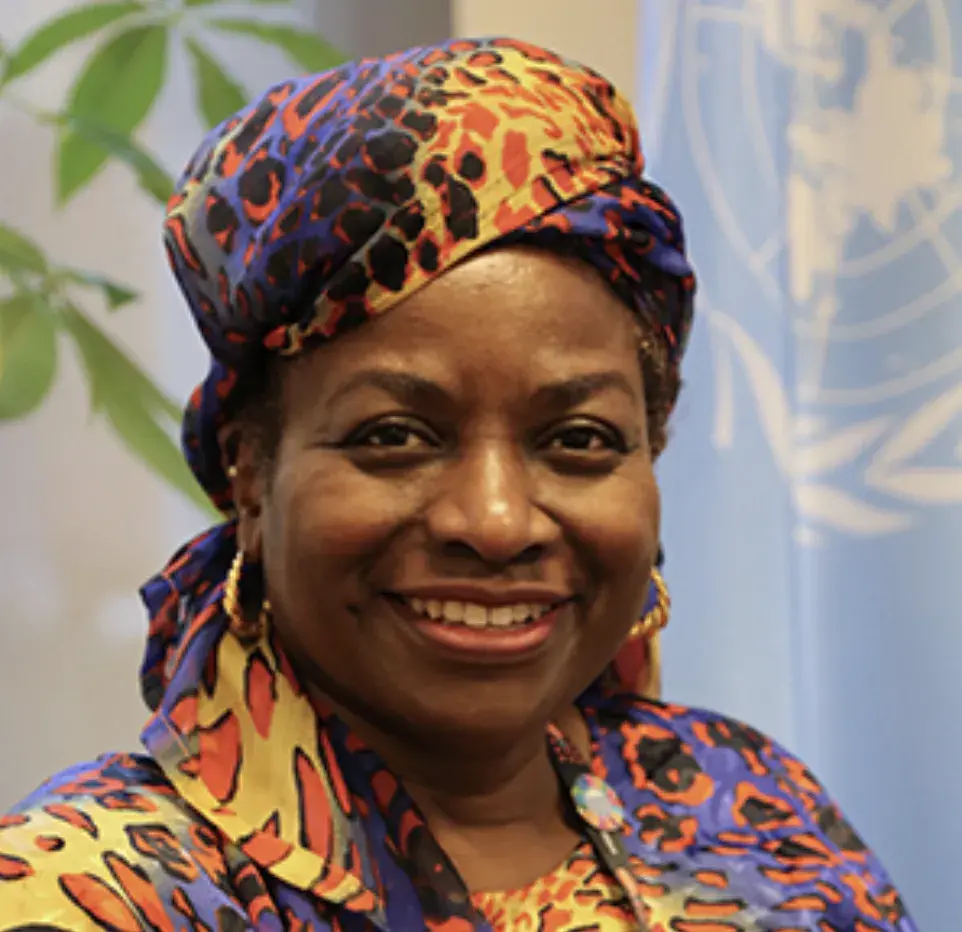A mother of 5 from Sari Village in Enga Province, found herself having a near-death experience after she faced complications during childbirth, delivering her sixth child at the Wabag General Hospital.
“This young mother came into the labour ward already 6cm dialated,” shared Sr. Mirriam Goiye, midwife at the Wabag General Hospital Labour Ward.
“Without giving time to the cervix to fully dilate, this mother started pushing and eventually gave birth to a baby girl, weighing 2.7 kilograms.”
Following the delivery, the mother was bleeding and her vitals turned as she went into shock. Shock is a condition brought on by a sudden drop in blood pressure. Without enough blood circulating through the body’s vital organs, shock can lead to life-threatening complications.
Fortunately for this young mother, her decision to deliver her baby at the hospital and the team was equipped to respond.
Sr. Goiye, who has been a midwife at the hospital for four years, said when she realized that the mother was in shock due to the loss of blood, she instructed her colleagues to use the Non-pneumatic Anti-Shock Garment (NASG), a piece of equipment used to treat shock .
“This mother had already lost three litres of blood,” recalls Sr. Goiye. “I knew that the Anti-Shock Garment would be the only way we could save this mother's life and we did. We managed to stabilize her until the doctors arrived and took her in for further monitoring.”
However, had this young mother attended the hospital just weeks prior, the outcome may have been different.
“We have had Anti-Shock Garment at the hospital for a while but did not have the skills to use it,” shared Sr Goiye. “After participating in the training from UNFPA in August, and learning about the NASG, we used this on this young mother when we recognised that she had gone into shock during delivery.”

Sr. Mirriam Goiye and 15 other health workers from three health facilities in Enga Province were part of an Emergency Obstetric and Neonatal Care (EmONC) training facilitated by the United Nations Population Fund through the funding support of the USAID, and facilitated by Senior Medical Doctor specializing in Obstetrics and Gynaecology, Dr. Anthonia Kumbia from the Wabag General Hospital. The training not only taught practicing providers new techniques for managing childbirth complications but also introduced them to a Safe Delivery App, a mobile phone application which provides assistance to midwives and other professionals throughout the stages of labour.
Dr. Kumbia, who led the week-long training, said these health facilities had adequate clinical caseloads and were able to apply knowledge learned, including the Safe Delivery App which will help them when it comes to case management and self-learning.
“The training enabled them to gain extra knowledge from what they learned previously and some new knowledge also. This made them more confident to care for patients. The presentation on the Cradle VSA blood pressure monitoring was a new thing for everyone and the session on the NASG was new for a few of the participants.”
That new knowledge enabled Sr. Goiye to save a life.
Dr. Kumbia acknowledged the importance of these skills and training for the health workers to apply the best and up-to-date practices in the obstetrics and gynecology and midwifery fields.
“This training builds on what they have learned during undergraduate, postgraduate and in-service training and introduces them to new knowledge too,” she said. “It empowers our health workers to continue to provide quality healthcare services.”
In thanking UNFPA for providing the training, Sr. Mirriam Goiye shared her gratitude for the EMONC training; without it, a mother's life would have been lost.
“We saved a life because we had the knowledge on how to apply the NASG. Thank you UNFPA.”





